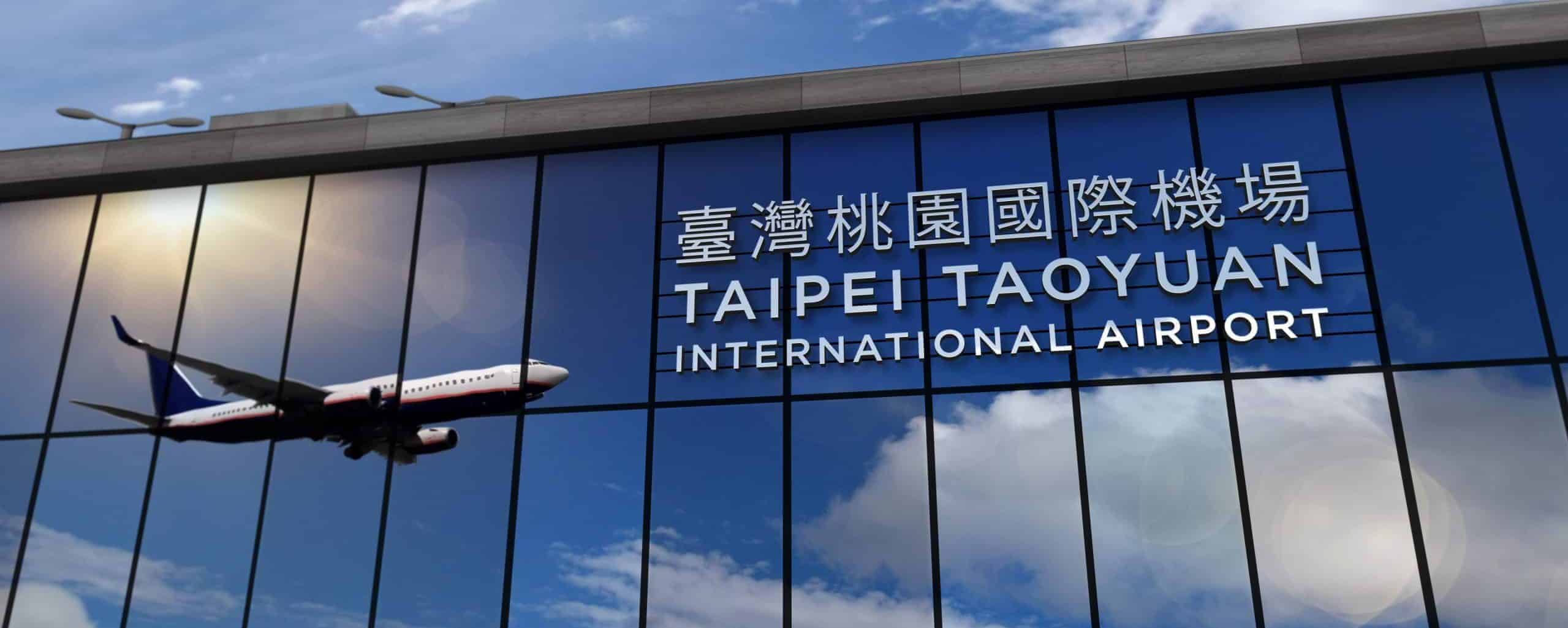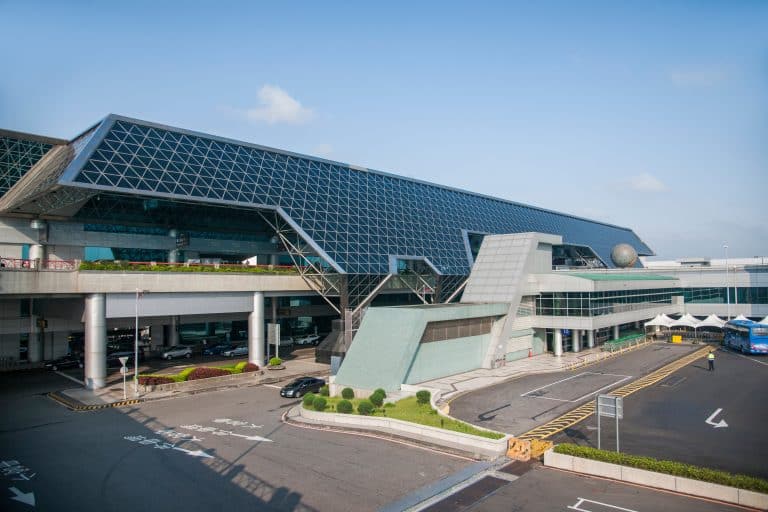Airport Money Exchange Rate: Navigating Currency Conversion at Terminals
Traveling can involve a slew of intricate details, but one aspect that frequently perplexes even seasoned travelers is the airport money exchange rate. When you’re in a foreign country, obtaining local currency is a necessity, and airports are among the first places you’ll have the opportunity to exchange your money. While the convenience of airport currency exchanges is undeniable, it comes at a price. The rates offered are often less favorable compared to other options such as banks or local money changers.
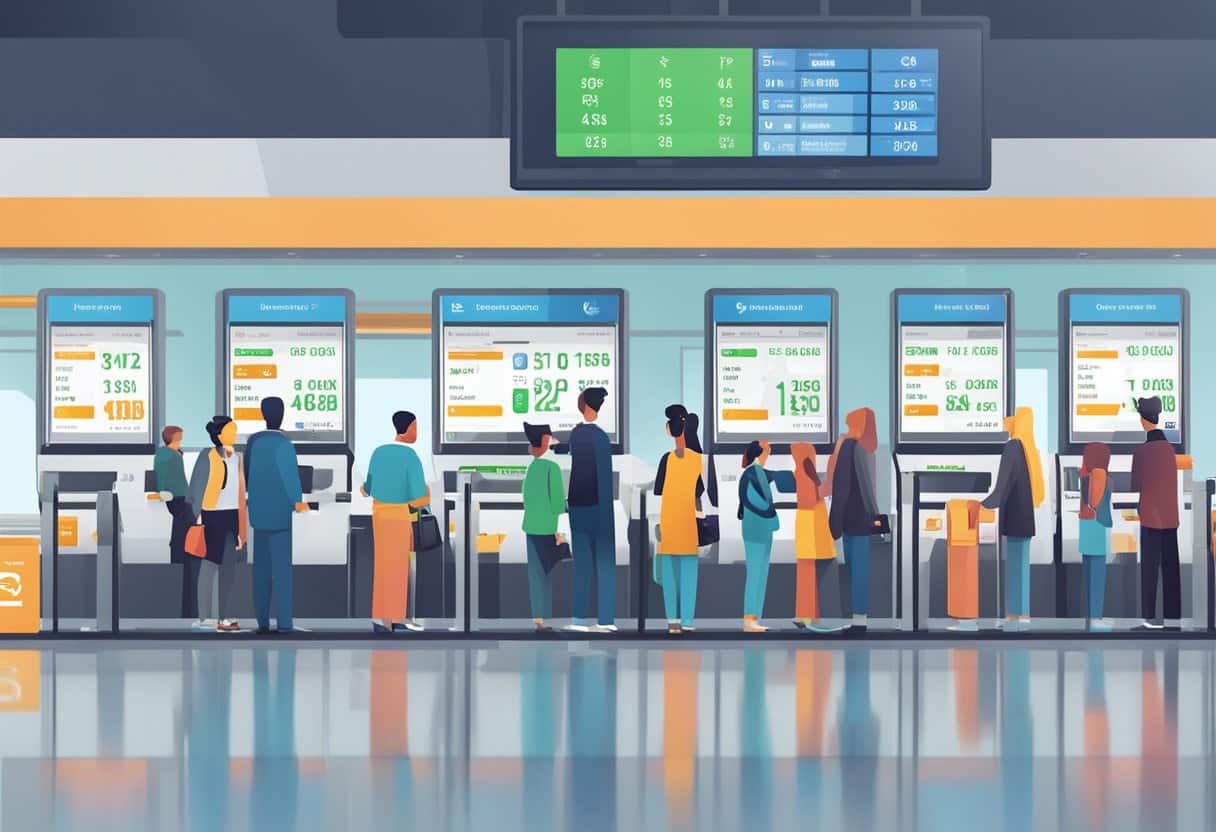
The costs and fees associated with exchanging currency at airports are influenced by provider markups and overhead costs. These exchanges often have higher fees and may not provide the best value for your home currency. In addition to fees, understanding the payment methods and instruments acceptable at airport exchange counters is crucial. While they usually accept a wide range of credit and debit cards, travelers should be wary of potential additional charges from their home banks.
Key Takeaways
- Airport exchanges provide convenience but tend to have higher fees and poorer exchange rates.
- Understanding the types of fees and acceptable payment methods is essential for currency exchange at airports.
- It’s recommended to explore various currency exchange options, including digital alternatives, for better rates and savings.
Understanding Exchange Rates
When engaging in currency exchange, it is crucial to grasp the concept of exchange rates and their fluctuation based on various economic factors. The rate at which money is exchanged impacts travelers, banks, and global financial institutions.
Basics of Currency Exchange
Currency exchange is the process of converting one currency into another, a common necessity for travelers and businesses engaging in international transactions. The exchange rate is the price of one nation’s currency in terms of another’s. Financial institutions often list rates in pairs, such as EUR/USD or USD/JPY, indicating how much of the second currency one unit of the first currency can buy.
For instance, an exchange rate of EUR/USD = 1.2 signifies that one euro is equivalent to 1.2 U.S. dollars. To obtain euros using U.S. dollars, one divides the amount of dollars by the given exchange rate. This calculation helps those needing to know how much of the foreign currency they will receive for their funds.
Determining Factors of Exchange Rates
Several elements influence exchange rates, which fluctuate constantly due to market forces. These factors include economic performance, interest rates set by central banks, and geopolitical stability. A country with a robust economy and stable political environment typically sees its currency appreciate in value.
Banks and financial institutions play a pivotal role in the currency exchange market. They buy and sell currencies at the mid-market rate—the midpoint between the supply and demand for that currency. However, for retail customers, these institutions add a margin to the mid-market rate, which results in the rates offered to the public.
Currency values are also subject to speculation and news that may affect a nation’s economic outlook. Investors buying and selling large volumes of currency can considerably alter exchange rates. These shifts underscore the need for travelers and those dealing in international commerce to monitor rates closely to optimize their currency exchange transactions.
Airport Money Exchange Options
Travelers have several options for exchanging currency at airports. Each has its own set of benefits and drawbacks, tailored to fit different needs and circumstances whether it’s convenience or getting a better rate.
Currency Exchange Kiosks
Currency exchange kiosks are the most visible option for travelers to exchange currency. They offer the convenience of location, situated strategically throughout the airport. Currency exchange kiosks tend to have higher fees or markup, which might be up to 10%. Despite the higher fees, these kiosks are handy for travelers who need local currency immediately upon arrival.
Local Bank Counters
Some airports feature local bank counters, which offer currency exchange services. They may provide more competitive exchange rates and lower fees compared to kiosks. However, their operating hours might be more limited, which requires travelers to plan according to the bank’s schedule. Travelers looking for a potentially more favorable exchange rate may consider visiting a local bank counter within the airport.
Dedicated ATM Facilities
Lastly, Dedicated ATM facilities are available at airports and can be a convenient way to withdraw local currency. While they may charge a fee for use, ATMs often provide better exchange rates than currency exchange services. Checking with the home bank about partnership agreements with local ATM providers can minimize or even eliminate these fees. For the security of transactions, it’s crucial for travelers to find ATMs that are properly maintained and located in secure areas of the airport.
Costs and Fees
When exchanging money at an airport, travelers are subject to a variety of specific costs which can significantly increase the total amount of fees paid. These include transaction fees, service charges, and ATM withdrawal costs, all of which vary from one airport to another.
Transaction Fees
Transaction fees are often applied to currency exchanges at airports. According to Wise, these fees are in addition to any exchange rate markups, which can make the cost of obtaining foreign currency quite high. Factors such as the amount of money exchanged and the currency pair involved could affect the transaction fee’s magnitude.
Service Charges
Service charges at airports can be disguised within the exchange rate itself, sometimes leading to less favorable rates for the customer. As reported by AirportBanking, service charges may range from $5 to $15. These fees contribute to the overall cost and should be closely examined when choosing where to exchange money.
ATM Withdrawal Costs
Withdrawing local currency from an ATM at an airport can incur dedicated ATM fees. Foreign transaction fees for using a debit card abroad often include a percentage of the withdrawn amount. For those using an ATM within the airport, it’s crucial to understand both the fixed fees and the variable costs, such as the dynamic currency conversion fees that may apply.
Payment Methods and Instruments
When traveling, understanding the various payment methods and instruments for currency exchange can lead to significant savings. One can utilize credit and debit cards, opt for travel money cards, or resort to mobile and online platforms for completing transactions.
Using Credit and Debit Cards
Credit cards and debit cards offer a convenient method for accessing funds overseas, but they may incur foreign transaction fees. She should confirm with her bank about these potential charges and whether her cards are widely accepted at her destination. Some banks offer cards specifically designed for travelers, which reduce or waive these fees.
Travel Money Cards and Prepaid Options
Travel money cards, also known as prepaid currency cards, allow individuals to load multiple currencies onto a single card at fixed exchange rates. These cards provide a lock-in rate, protecting users against exchange rate fluctuations. They work similar to debit cards but must be preloaded with the desired amount of currency before travel.
Mobile and Online Currency Converters
Travelers can utilize mobile apps and online currency converters for convenient access to current exchange rates. These platforms can offer more competitive rates than traditional airport kiosks or banks. Many mobile apps also provide the added benefit of being able to store multiple currencies and make payments directly from the app, which can be particularly beneficial when traveling to multiple countries.
Best Practices for Currency Exchange at Airports
When exchanging currency at airports, travelers should be aware of the often higher fees and less favorable rates compared to other options. Knowing how to navigate these challenges can help in securing a better exchange deal.
Understanding Rates and Fees
Airports are notorious for their high fees and less competitive exchange rates. It’s crucial to compare the rates offered by different airport exchange counters. Travelers should look for a currency exchange service that is transparent about their fees, ensuring they aren’t paying more than necessary. Using a currency converter before the trip can provide a benchmark of what rates to expect.
Timing Your Exchange
The best practice is to exchange a small amount of local currency before traveling to cover initial expenses. This can prevent a traveler from being stranded without local currency in cases of emergency. After arriving at the destination, they might find better rates at a local bank or currency exchange in the city.
Considering Online Alternatives
Online currency exchange platforms often offer more competitive rates compared to airport kiosks. These services may provide the option to have the local currency delivered in advance or picked up at a location in the market with lower fees. They can serve as a cost-effective alternative to exchange currency instead of relying solely on airport services.
Digital and Fintech Alternatives
In the evolving landscape of currency exchange, digital and fintech alternatives are reshaping how travelers handle foreign money. These platforms offer competitive rates and convenient access to funds globally.
Financial Tech Platforms
Wise and Revolut stand at the forefront of financial technology platforms that have revolutionized money exchange for travelers. These services provide users with the ability to hold and exchange multiple currencies at close-to-market rates, often much better than traditional airport kiosks. Wise, formerly known as TransferWise, operates with transparency, revealing all exchange fees upfront. On the other hand, Revolut extends its offerings with budgeting tools and real-time spending analytics, making it a comprehensive financial companion abroad.
Comparing Digital Banks and Services
When assessing digital banks and their services, one should consider the various benefits each provides. For transactions, services like Revolut may add a small markup of 1-2% of the interbank exchange rate outside of market hours, as noted by The Points Guy. Meanwhile, travelers can manage their funds across currencies with ease, thanks to multi-currency accounts from platforms like Airwallex, which offers competitive foreign exchange services.
Global ATM Networks
The reach of a global ATM network is vital for travelers needing cash. Fintech services have addressed this need, with providers like Revolut enabling international ATM withdrawals. While these may come with associated fees, they are typically lower than what traditional banks charge. The accessibility of global ATM networks through fintech solutions grants travelers the flexibility to withdraw cash as needed, often aligning more closely with the interbank exchange rate than local currency exchange services might offer.
Legal Considerations and Compliance
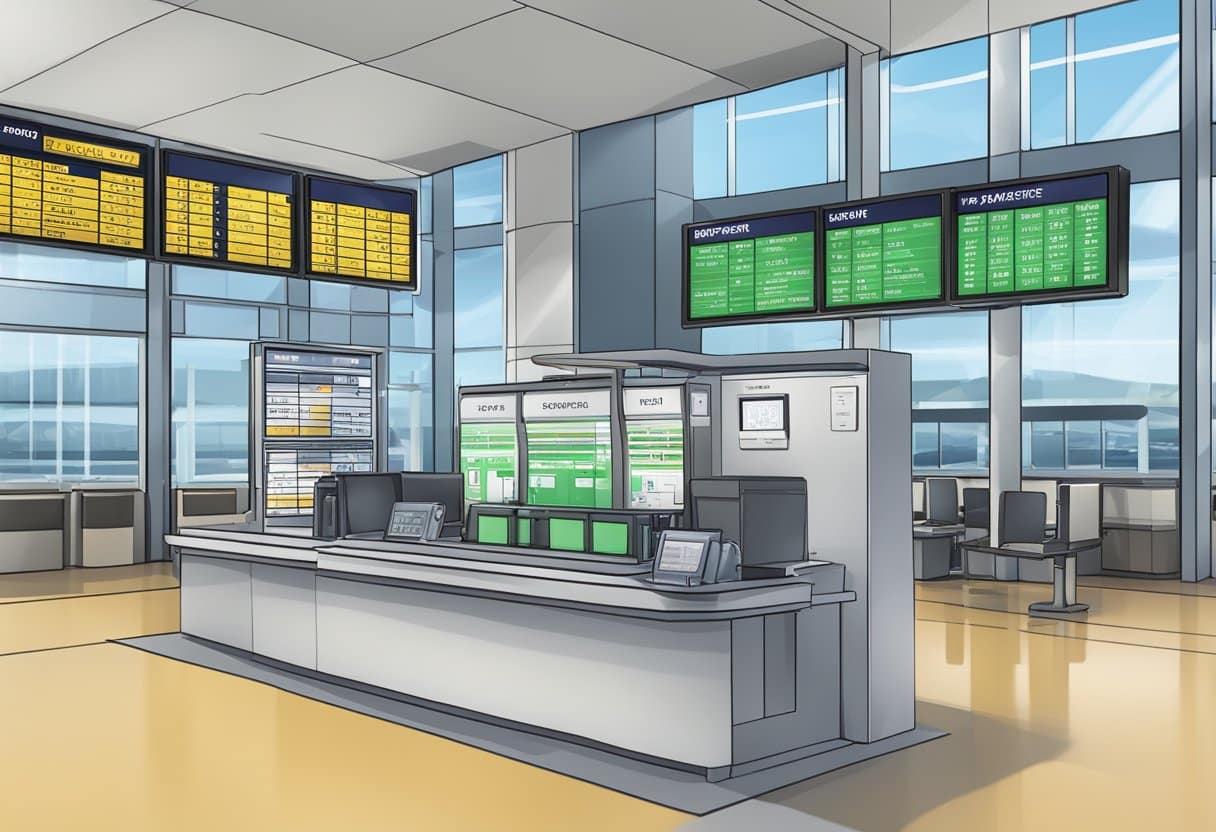
When exchanging currency at airports, travelers must navigate a complex landscape of legal and compliance protocols. These regulations are designed to ensure security, prevent monetary crimes, and create a standardized process for currency exchange.
Regulatory Frameworks
Under the overarching jurisdiction of the RBI (Reserve Bank of India), airport currency exchange operators must adhere to stringent regulatory frameworks. These include compliance with the Foreign Exchange Management Act (FEMA) which governs cross-border transactions and reflects a legal commitment to maintaining the financial integrity of India’s borders. The FEMA sets the guidelines for currency exchange and mandates that all airport currency exchange services operate within these legal perimeters to avoid penalties.
Anti-Money Laundering Policies
Airport currency services are obligated to implement robust anti-money laundering (AML) policies. They must conduct due diligence on their customers and report any suspicious transactions to the appropriate legal authorities. Compliance with AML regulations helps in deterring the misuse of financial services for illicit activities. The RBI monitors these transactions closely and requires that all currency exchanges at airports maintain detailed records as part of their legal obligations.
Airport Security Procedures
The integration of compliance measures with airport security procedures ensures that currency exchange transactions adhere to safety standards set by legal and regulatory bodies. Security checks and validations are a mandatory component, focusing on identity verification to prevent fraudulent activities. Airport currency exchanges are regulated facilities that are subject to routine audits by security officials to ensure that compliance and legal responsibilities are consistently met.
Recommendations for Travelers
When traveling, one stands to face substantial expenses through currency conversion if not managed correctly. The key is to navigate exchange rates, fees, and rewards to maximize your financial efficiency abroad.
Optimizing Currency Conversion
Travelers should seek to optimize their currency conversion by avoiding airport exchanges, which often have poor exchange rates and high fees. Instead, obtaining currency from a bank or credit union prior to departure typically results in more favorable rates. For those requiring currency upon arrival at the destination, using local ATMs can provide competitive rates and lower fees compared to airport kiosks.
Managing Your Money While Traveling
Effective management of money while traveling is crucial. Travelers are advised to divide their funds between cash and electronic mediums. It’s prudent to have a limited amount of foreign currency in cash for small transactions, and for the remainder, maintenance of a secure online account that can be accessed as needed is ideal. Additionally, travelers should inquire whether their usual bank has international partners to minimize withdrawal fees and should be aware of how to report and replace stolen cards.
Leveraging Travel Rewards and Benefits
Travelers can also capitalize on travel rewards and benefits. Using a travel credit card that offers rewards on purchases and doesn’t charge foreign transaction fees is beneficial. One should look into cards that provide travel benefits such as lounge access, which can offer significant savings and convenience. This approach maximizes value on every dollar spent and can lead to discounts on future travel, accommodations, and more.
In brief, travelers who plan and make strategic decisions about currency conversion, money management, and leveraging rewards stand the best chance of minimizing fees and maximizing the value of their money while abroad.
Frequently Asked Questions
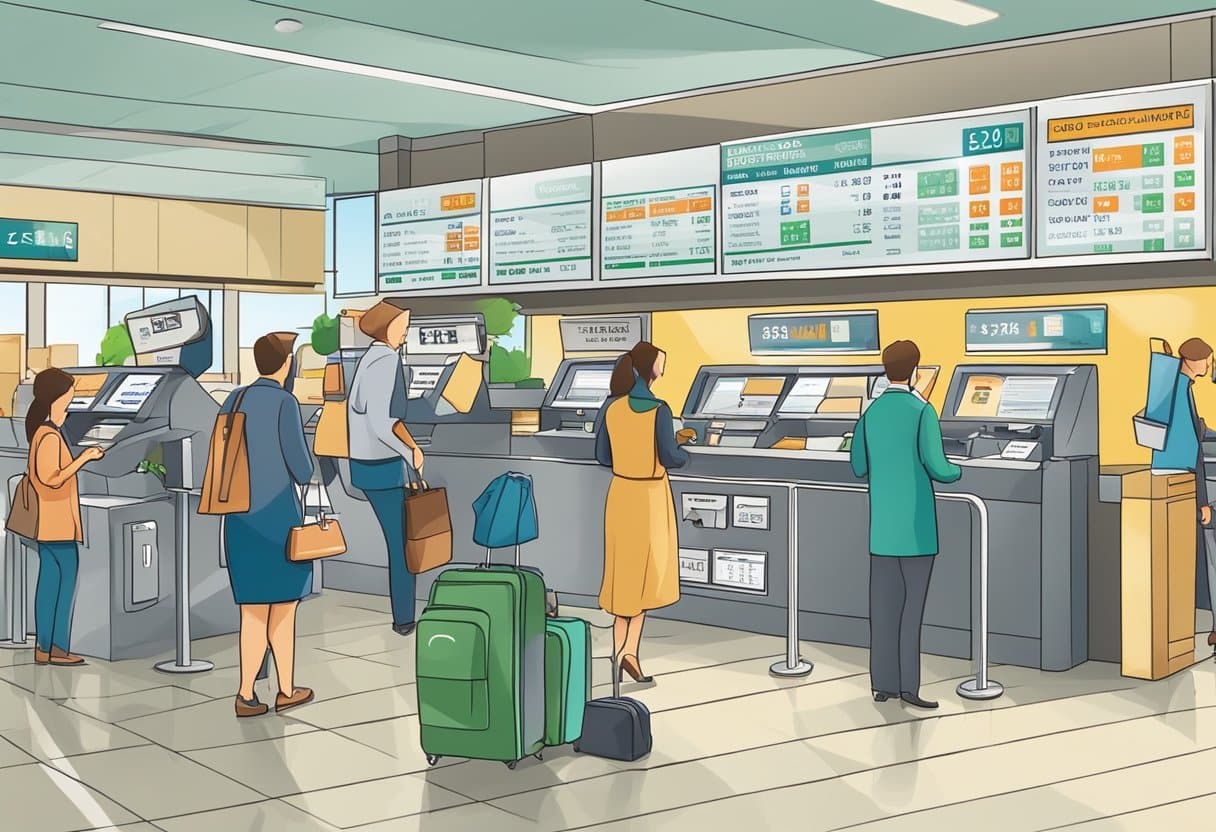
When dealing with foreign currency, travelers often weigh the convenience of airport exchange services against the potential cost savings from banking institutions.
What are the advantages of exchanging currency at a bank like Bank of America versus an airport exchange service?
Banks such as Bank of America typically offer more competitive exchange rates and lower fees compared to airport exchange services. This can make a significant difference in the total amount of foreign currency received.
How can I find the best currency exchange rates near me?
To find the most favorable exchange rates, consider using online tools that compare the rates offered by nearby banks and exchange services. Additionally, some financial institutions provide online currency conversion facilities with updated rates.
What fees should I expect when exchanging currency at an airport?
Exchanging currency at an airport often comes with high commission and transaction fees. These fees vary and might be a fixed cost or a percentage of the amount exchanged. They are sometimes hidden in the offered exchange rates.
How does the exchange rate at airports compare to that of local banks like Wells Fargo or Chase Bank?
Airports are known for their convenient exchange services, however, their rates are usually less favorable when compared to local banks such as Wells Fargo or Chase Bank.
Are there specific factors to consider when choosing whether to exchange currency at home or while traveling abroad?
When considering where to exchange currency, think about factors such as the length of the trip, the local currency’s availability, and the potential savings from exchanging at a bank compared to the convenience of using an airport service.
Where to find the most favorable US dollar exchange rates?
The most favorable US dollar exchange rates are typically found at banks, specialized currency exchange businesses, or through reputable online exchange platforms. Comparing rates beforehand is always advised to ensure getting the best deal.
